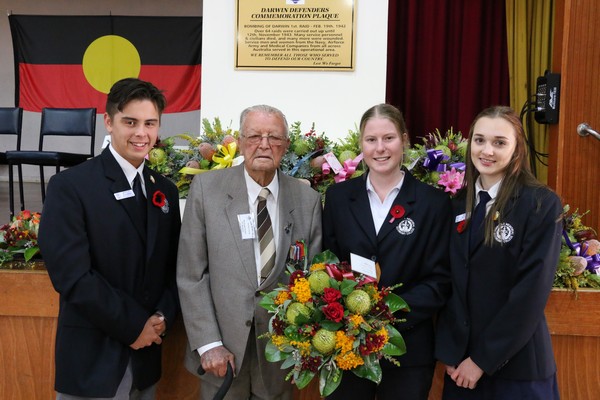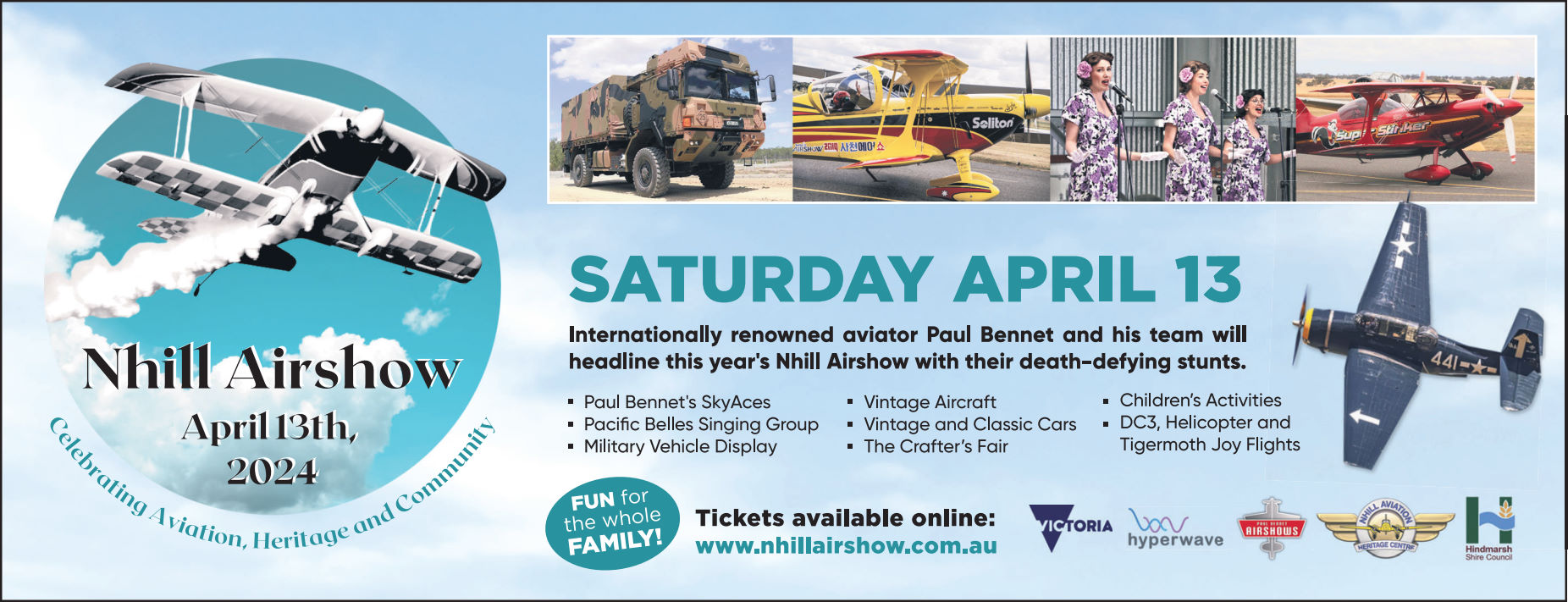Local war historian Charles Rees wrote the following piece about Dimboola's role in the Wimmera connection to the first mainland attack on Australia during World War II, the Darwin Bombings of 19th February 1942.
Australia was in readiness for a possible Japanese invasion from the north. A Naval Base was established in Darwin Port and several aerodromes were Airbases for the United States of America Airforce, Netherlands East Indies Airforce and our own RAAF. The Australian Army units were stationed at coastal defence positions. This included "The Wimmera Boys', 19th Light Horse Machine Gun Regiment.
Raised as a militia unit in 1940, based at Horsham, from the 1st Armoured Car Unit based at Warracknabeal and 19th Light Horse Regiment, Horsham. Men from Wimmera towns and the southern Mallee joined up. 900 of these men were attached to what became the 19th Light Horse Machine Gun Regiment. Later named the 19 Machine Gun Battalion.
Photo above - Japanese bombs landing inland and along the foreshore of Darwin Harbour during the first air raid, 19th February 1942. Image 012953 from the Australian War Memorial collection.
Late in 1941 they "moved out" by train to Alice Springs, then by truck on rough unmade roads to be transferred to train cattle carriages a short distance from Darwin. They arrived into a sub-tropical landscape of lush humid jungle, a vast contrast to dry hot open countryside they knew.
Posted to the 23rd Brigade, companies of men were sent to various coastal outposts, some to Winnellie, 7 km north-east of Darwin.
Harsh conditions of high humidity, mosquitoes, supply shortages and indifferent rations was just the beginning of their dangers and discomforts.
On the morning of February 19th, 1942, aircraft were sited, at first they were assumed to be Americans on a training mission, that changed very quickly when, "It's the Japs", was shouted.
At 09.58am 188 Japanese planes, launched from aircraft carriers in the Timor Sea, striffed and bombed Darwin, a 40 minute raid, destroying the Post Office, the Telegraph and Cable Offices and the Post-Masters resident, as well as many other buildings, fuel dumps and aerodromes damaged.
One hour later another 54 land based planes attacked the harbour and military and civil infrastructure, lasting 25 minutes.
These air raids were to be the first attack on Australia by a foreign power. Imperial Japanese Navy Air Commander (later Captain) Mitsuo Fuchida lead the first wave. He also led the air raid on Pearl Harbour, 7th December, 1941.
45 ships were in Darwin Harbour, 8 were sunk, with many other ships suffering various ranges of damage and 23 American and RAAF aeroplanes destroyed. The circumstances were desperate and the defence was inadequate: WW1 guns, machine guns with 1 belt of ammunition and the infantry had 5 rounds only, some units did not have enough rifles, no fighter aircraft.
The survivors faced chaos and devastation. Horsham Darwin veteran, 95-year-old Frank Fischer, described the situation, "frighting and confusing, no one knew what was going on at the time'.
Due to confusion and horror of the destruction on the unsuspecting people of Darwin, official figures of the death toll and wounded were varied. "The Government of the day" claimed 243 were killed and up to 400 wounded.
However many more, maybe over a 1,000 killed. In fact the outcome was really strictly censored, with all documents stamped: "Not to be released until 1995".
Officially, the Australian Government restriction on information was to maintain the morale of the Australian people.
Hence we are still today learning more of what happened in Darwin during WW2. What is certain, Japanese aircraft made 64 air raids on Darwin and surrounds, with further attacks across northern Australia, until the 12th November, 1943. This included Wyndham, Broome, Exmouth and Onslow in WA, over 200 km inland to Katherine, NT and Townsville and Mosman, Qld.
Some returned Dimboola men who served and witnessed the Darwin horror were Lester Marks, Gordon Haby, Cliff Sallmann, Eric Avery, Sam Pohlner and Max Goodier.
The Darwin Defenders organisation hold a remembrance service in Horsham each year to honour the men of the Wimmera who gave their all in Darwin during WW2.
On Monday the 20th, Dimboola Memorial Secondary College captains Kynan Clarke and Remi Kuhne (pictured below with Frank Fischer and DMSC Year 10 student Rebekah Albrecht) represented Dimboola with dignity in their role at the Horsham College service. Click here to read our news story about the service.
Thank you to Warrant Officer David Sudholz, Norforce, Australian Army; Horsham Darwin Defenders; National Archives of Australia; and Mr Frank Fischer, Darwin Veteran.

|






